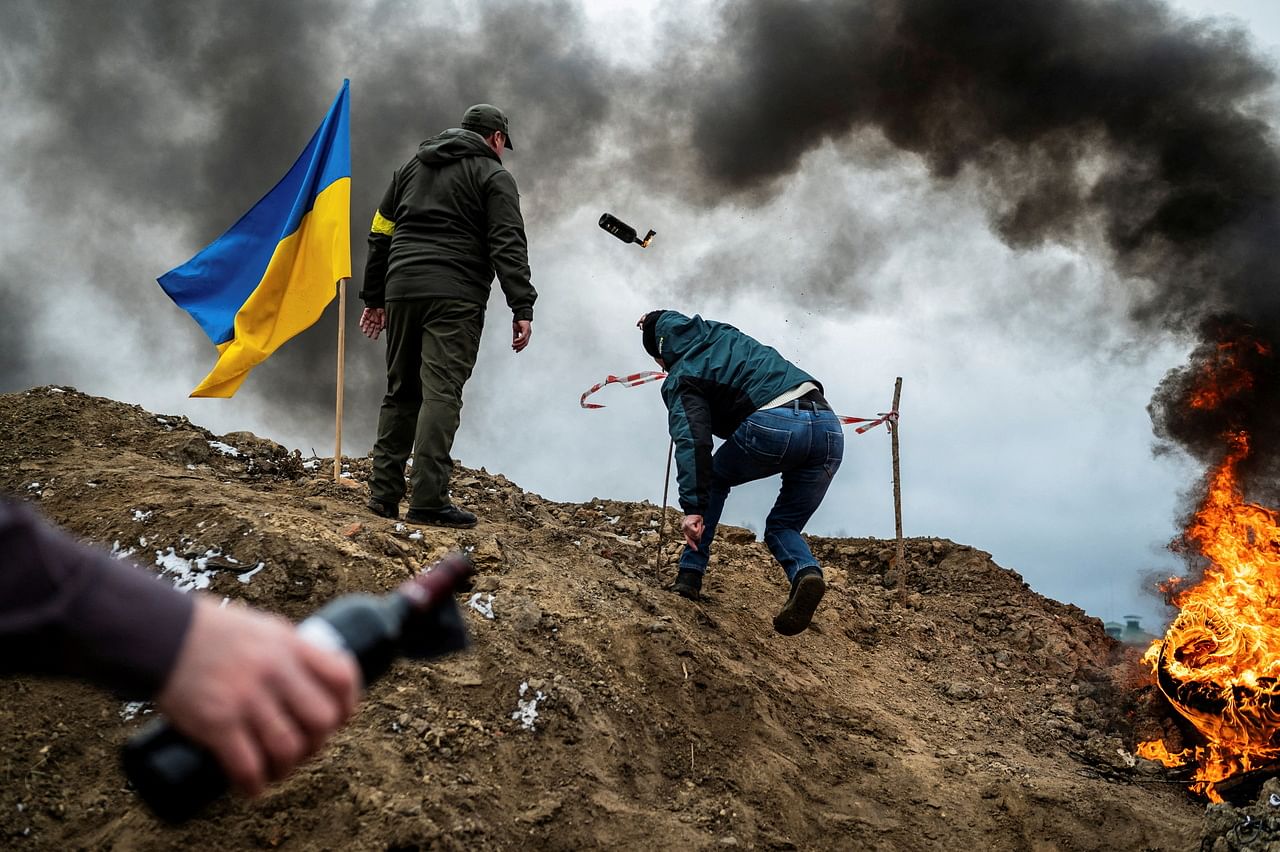A battle between good and evil

Here in my gentrified north-west Washington DC bubble, I can count at least six houses displaying Ukrainian flags within four blocks each way.
The dogs of war are loose, and there is anxiety in the air. Since Russia invaded Ukraine on Feb 24, President Joe Biden has called his Russian counterpart Vladimir Putin a "war criminal" and a "butcher", seemingly called for regime change and, most recently, accused him of "genocide".
The carnage in Ukraine continues to top cable news channels in a competing, self-reinforcing cycle of graphic images of corpses lying in the streets of bombed and blackened cities, of mass graves, of shattered families. This war is by far the most extensively documented by the media of our time, across multiple platforms. That, plus the heated rhetoric, has created a binary, Manichean narrative of good (Ukraine) versus evil (Russia) out of closely tracked battlefield developments.
Why America, not Putin, is the culprit

About a week into the war, diplomatic compounds along Beijing's embassy row put up banners or lit their buildings in blue and yellow in support of Ukraine.
But just a day after the Canadian embassy erected a billboard outside its perimeter wall showing solidarity with Ukraine, someone came along and scrawled in large letters the words "Fxxx Nato".
No one's been prosecuted, but you will see at least one bored plain-clothes policeman standing on that street corner every night now.
- Power Play is a weekly column that looks at various facets of US-China rivalry and its implications for Asia.

